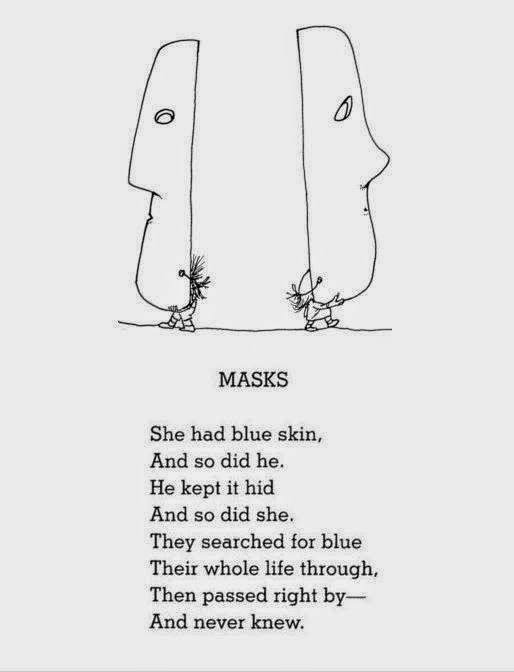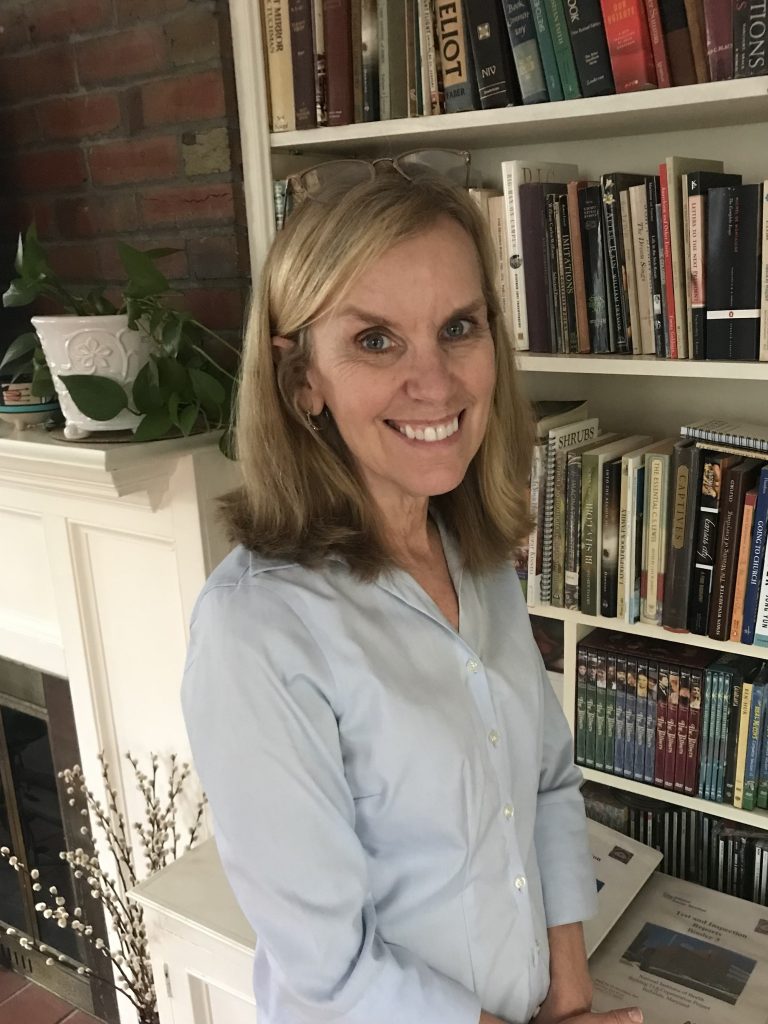
As a little girl, the first poems I heard were from the fresh pages of the Shel Silverstein book Every Thing on It that my mom read to me by my bedside. What kept me reading Silverstein’s poems long after I could read them myself was that, beneath their kid-friendly language, poems like “Masks” speak about common human experiences, as well as the process of writing.
Although short and seemingly simple, “Masks” is a poem much deeper than Silverstein’s friendly illustrations may allude. “Masks” tells the simple story of two wandering souls who never find each other because of their failure to show, quite literally, their true colors. The “blue skin” of the characters in “Masks” can be interpreted by the reader as either odd or intriguing. The risk of being considered the former is something that all people, both the characters in the story and we as the reader, face when being ourselves. Silverstein explores the idea of self-expression and its importance: while the risk of oddity is present when you express your true self, so is the potential of finding tremendous love from the people around you.
In his illustration for this poem Silverstein shows two characters holding up emotionless masks that are so large that the characters behind them struggle to be visible at all. “Masks” is about putting down the big masks that we all wear, that façade of “normal,” and revealing those weird parts of you that truly make you unique. It is also, however, about the risk we face as writers when we explore new and innovative routes for creating poems. This short, seemingly child-like poem, is therefore about much more than it seems: it is a story that extends beyond that cliché of being yourself by speaking about the power of words. Silverstein is able to show in just a few lines how important expression can be, and he uses poetry as a way to do that. Writing is a channel of expression that connects us to the reader through the sincerity of words on a page and by discussing the ways we view ourselves and the people around us. “Masks” speaks of one of the most important aims of poetry.
— Sara Policastro
Sara is a Human Services and English major, who has loved writing since a young age.






